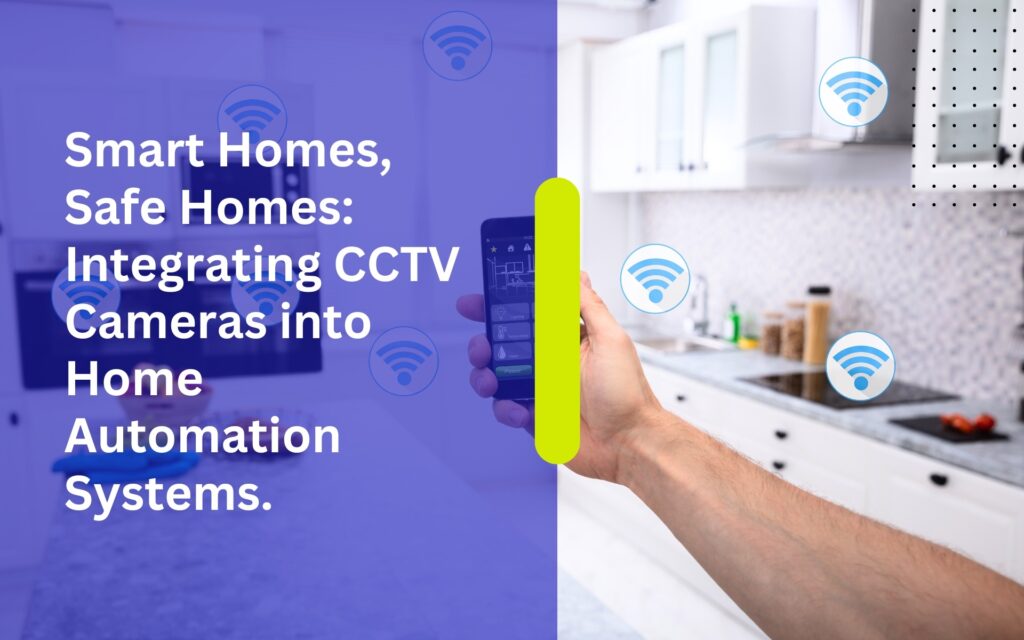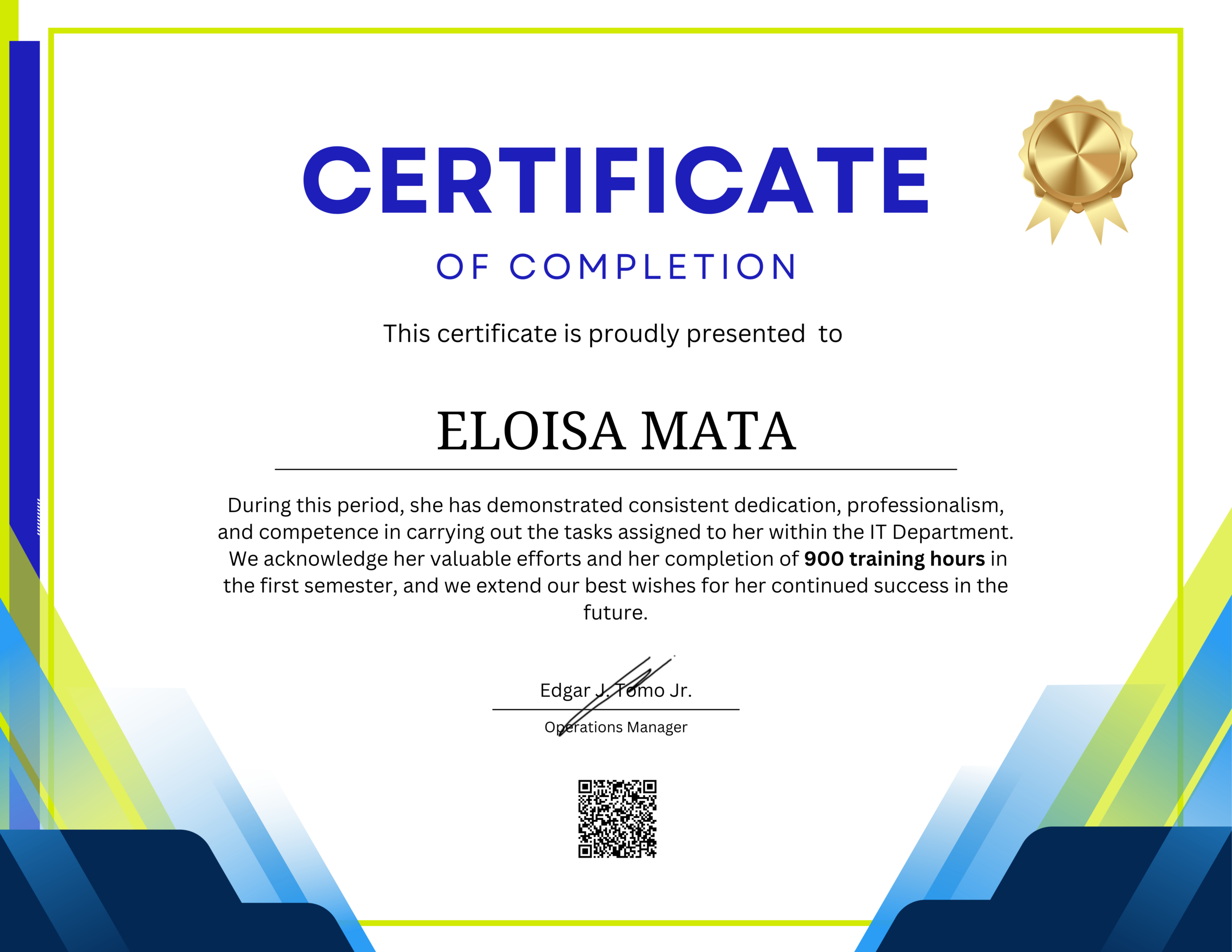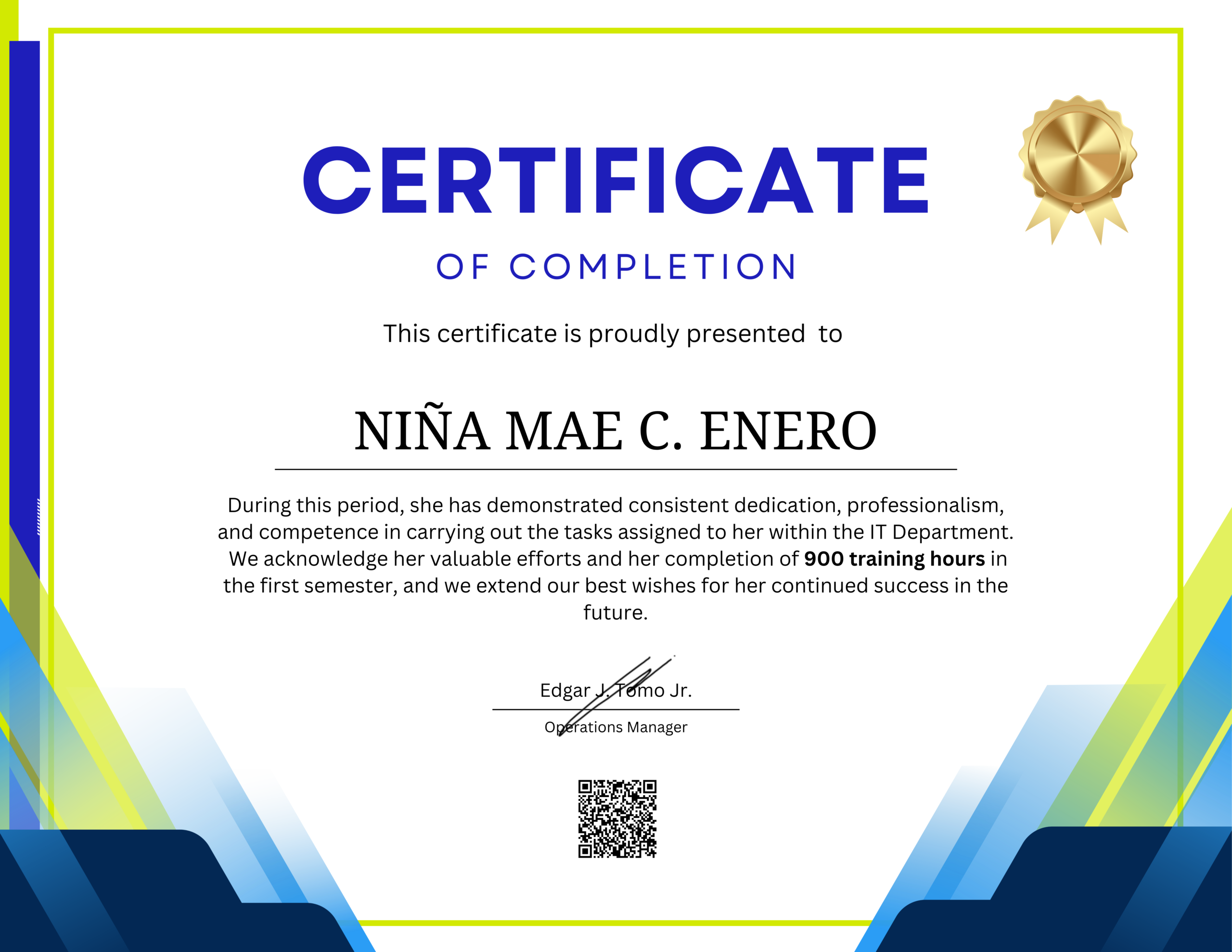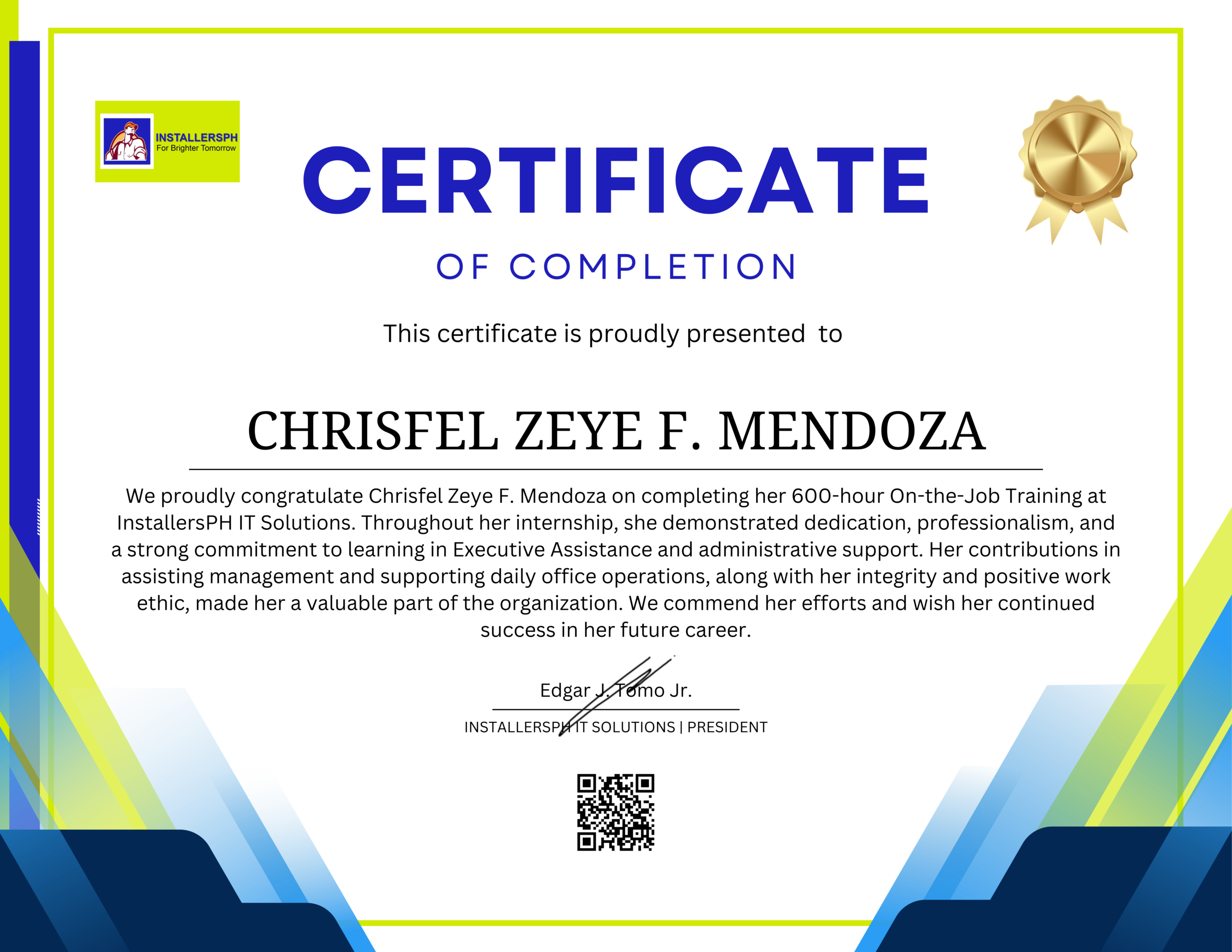The On-the-Job Training Experience of Niña Mae C. Enero Acknowledging Dedication in IT On-the-Job Training. During her on-the-job training period, she demonstrated consistent dedication and a strong sense of responsibility in fulfilling …
Smart Homes, Safe Homes: Integrating CCTV Cameras into Home Automation Systems.

Introduction
In an era marked by technological advancements, the concept of the smart home has emerged as a beacon of convenience, efficiency, and security. With the integration of various interconnected devices and appliances, homeowners can now control and automate their living spaces like never before. Among the myriad of smart devices available, Closed-Circuit Television (CCTV) cameras stand out as a critical component in safeguarding homes against intruders and ensuring the safety of occupants. In this comprehensive guide, we explore the seamless integration of CCTV cameras into home automation systems, delving into the benefits, considerations, and best practices for homeowners seeking to fortify their home security infrastructure.
Understanding Home Automation Systems
At the heart of every smart home lies a sophisticated network of interconnected devices and appliances, collectively known as a home automation system. This ecosystem comprises a diverse array of components, including smart thermostats, lighting controls, door locks, security alarms, and surveillance cameras. These devices communicate with each other via a centralized hub or smartphone application, enabling homeowners to remotely monitor, control, and automate various aspects of their homes.
The Role of CCTV Cameras in Home Security
Among the myriad of smart devices available, CCTV cameras play a pivotal role in home security. Traditionally employed in commercial settings, CCTV cameras have evolved to offer advanced features such as high-definition video recording, motion detection, night vision, and two-way audio communication. When integrated into a home automation system, these cameras provide homeowners with real-time monitoring capabilities, instant alerts of suspicious activities, and the ability to deter intruders through live audio warnings.
Benefits of Integrating CCTV Cameras into Home Automation Systems
1. Enhanced Security
CCTV cameras serve as a formidable deterrent against potential intruders, offering continuous surveillance of the property and providing valuable evidence in the event of a security breach.
2. Remote Monitoring
With remote access capabilities, homeowners can monitor their homes in real-time from anywhere in the world, using a smartphone or computer, thereby enhancing peace of mind and enabling swift response to security threats.
3. Integration with Other Devices
CCTV cameras seamlessly integrate with other smart home devices such as motion sensors, door locks, and lighting controls, allowing for automated responses to security events. For example, a motion sensor detecting movement in the backyard can trigger the CCTV camera to start recording and turn on outdoor lights.
4. Customized Alerts and Notifications
Homeowners can configure their CCTV cameras to send customized alerts and notifications based on specific events, such as motion detection or door activity. This ensures that they are promptly informed of any security-related incidents, even when they are away from home.
5. Evidence Collection for Law Enforcement
In the unfortunate event of a security breach or criminal activity, CCTV footage can serve as valuable evidence for law enforcement authorities, aiding in the identification and apprehension of perpetrators.
Considerations When Integrating CCTV Cameras
While the integration of CCTV cameras into a home automation system offers numerous benefits, there are several considerations that homeowners should bear in mind:
1. Placement
Proper placement of CCTV cameras is paramount to ensure comprehensive coverage of the property. Factors such as the layout of the home, potential blind spots, and areas of high traffic should be taken into account when determining camera placement.
2. Privacy Concerns
Homeowners must be mindful of privacy implications associated with CCTV surveillance. Cameras should not be positioned in areas where they may infringe upon the privacy of neighbors or passersby, and clear signage indicating the presence of surveillance cameras should be displayed.
3. Network Security
Protecting the surveillance system from potential cyber threats is of utmost importance. Homeowners should implement robust security measures, such as using strong passwords, regularly updating firmware, and employing encrypted connections for remote access.
4. Compliance with Regulations
It is essential to familiarize oneself with local regulations governing the use of CCTV cameras, including privacy laws and restrictions on recording audio in certain jurisdictions. Failure to comply with these regulations may result in legal consequences.
5. Maintenance and Upkeep
Regular maintenance of CCTV cameras is necessary to ensure optimal performance and reliability. This includes cleaning lenses, checking for firmware updates, and replacing worn-out components as needed.
Best Practices for CCTV Integration
To maximize the effectiveness of CCTV cameras within a home automation system, homeowners should adhere to the following best practices:
1. Selecting the Right Cameras
Choose CCTV cameras that are compatible with your home automation platform and offer features tailored to your specific security needs. Consider factors such as resolution, field of view, night vision capabilities, and weather resistance when selecting cameras for outdoor surveillance.
2. Integrating with Smart Home Hub
Integrate CCTV cameras with a centralized smart home hub or control panel to facilitate seamless management and automation of security devices. This centralization allows homeowners to monitor and control their entire security ecosystem from a single interface, enhancing convenience and efficiency.
3. Creating Customized Rules and Alerts
Leverage the automation capabilities of your home security system to create customized rules and alerts based on specific events. For example, you can configure the system to send a notification to your smartphone whenever motion is detected in a certain area or when a door is opened while you are away from home.
4. Regular Testing and Maintenance
Schedule periodic testing and maintenance of CCTV cameras to ensure they are functioning correctly. This includes checking camera angles, verifying video quality, and replacing faulty components as necessary. Additionally, ensure that all software and firmware updates are promptly installed to address any security vulnerabilities and enhance performance.
5. Professional Installation
Consider enlisting the services of a professional installer to ensure proper placement and setup of CCTV cameras. A professional installer can assess your home’s security needs, recommend the most suitable camera placements, and ensure that the system is configured correctly for optimal performance and reliability.
Conclusion
In conclusion, the integration of CCTV cameras into home automation systems represents a significant advancement in home security technology, offering homeowners a powerful tool to safeguard their properties and loved ones. By leveraging the capabilities of modern surveillance technology and integrating it with other smart home devices, homeowners can enjoy peace of mind knowing that their homes are protected around the clock. However, it is crucial to consider factors such as privacy, network security, and compliance with regulations when implementing CCTV surveillance. By following best practices and staying informed about the latest advancements in home security technology, homeowners can create smart homes that are not only convenient and comfortable but also safe and secure.
Related Articles
The On-the-Job Training Experience of Niña Mae C. Enero Acknowledging Dedication in IT On-the-Job Training. During her on-the-job training period, she demonstrated consistent dedication and a strong sense of responsibility in fulfilling …
The On-the-Job Training Experience of Chrisfel Zeye F. Mendoza Introduction. On-the-Job Training (OJT) plays a vital role in preparing students for the professional world by allowing them to apply academic knowledge in …



